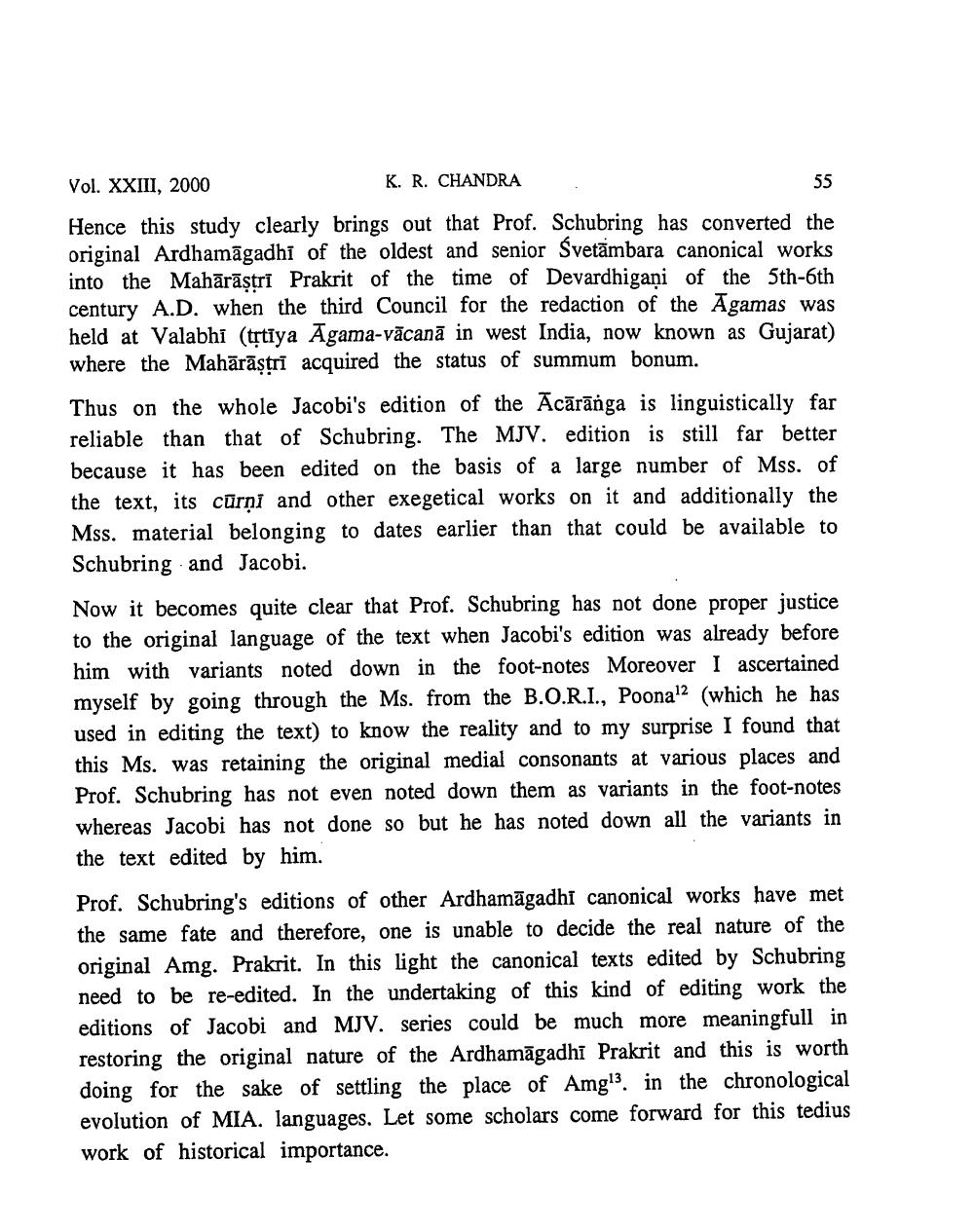________________
Vol. XXIII, 2000
K. R. CHANDRA
55
Hence this study clearly brings out that Prof. Schubring has converted the original Ardhamāgadhi of the oldest and senior Svetāmbara canonical works into the Mahārāstri Prakrit of the time of Devardhigani of the 5th-6th century A.D. when the third Council for the redaction of the Agamas was held at Valabhi (trtiya Agama-vācanā in west India, now known as Gujarat) where the Mahārāştri acquired the status of summum bonum.
Thus on the whole Jacobi's edition of the Acārānga is linguistically far reliable than that of Schubring. The MJV. edition is still far better because it has been edited on the basis of a large number of Mss. of the text, its cūrni and other exegetical works on it and additionally the Mss. material belonging to dates earlier than that could be available to Schubring and Jacobi.
Now it becomes quite clear that Prof. Schubring has not done proper justice to the original language of the text when Jacobi's edition was already before him with variants noted down in the foot-notes Moreover I ascertained myself by going through the Ms. from the B.O.R.I., Poonal? (which he has used in editing the text) to know the reality and to my surprise I found that this Ms. was retaining the original medial consonants at various places and Prof. Schubring has not even noted down them as variants in the foot-notes whereas Jacobi has not done so but he has noted down all the variants in the text edited by him.
Prof. Schubring's editions of other Ardhamāgadhi canonical works have met the same fate and therefore, one is unable to decide the real nature of the original Amg. Prakrit. In this light the canonical texts edited by Schubring need to be re-edited. In the undertaking of this kind of editing work the editions of Jacobi and MJV. series could be much more meaningfull in restoring the original nature of the Ardhamāgadhi Prakrit and this is worth doing for the sake of settling the place of Amg13. in the chronological evolution of MIA. languages. Let some scholars come forward for this tedius work of historical importance.




